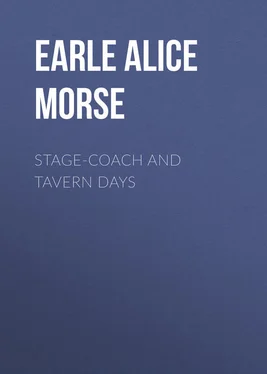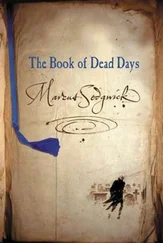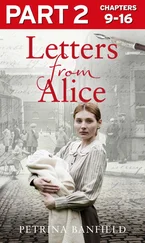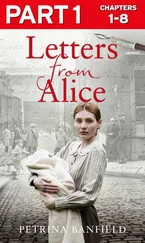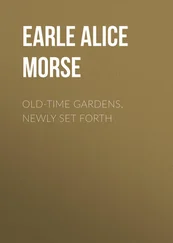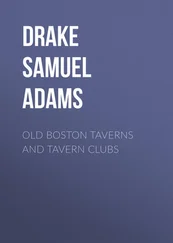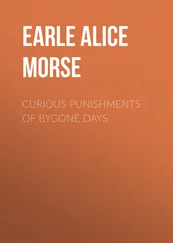Alice Earle - Stage-coach and Tavern Days
Здесь есть возможность читать онлайн «Alice Earle - Stage-coach and Tavern Days» — ознакомительный отрывок электронной книги совершенно бесплатно, а после прочтения отрывка купить полную версию. В некоторых случаях можно слушать аудио, скачать через торрент в формате fb2 и присутствует краткое содержание. Жанр: foreign_antique, foreign_prose, на английском языке. Описание произведения, (предисловие) а так же отзывы посетителей доступны на портале библиотеки ЛибКат.
- Название:Stage-coach and Tavern Days
- Автор:
- Жанр:
- Год:неизвестен
- ISBN:нет данных
- Рейтинг книги:4 / 5. Голосов: 1
-
Избранное:Добавить в избранное
- Отзывы:
-
Ваша оценка:
- 80
- 1
- 2
- 3
- 4
- 5
Stage-coach and Tavern Days: краткое содержание, описание и аннотация
Предлагаем к чтению аннотацию, описание, краткое содержание или предисловие (зависит от того, что написал сам автор книги «Stage-coach and Tavern Days»). Если вы не нашли необходимую информацию о книге — напишите в комментариях, мы постараемся отыскать её.
Stage-coach and Tavern Days — читать онлайн ознакомительный отрывок
Ниже представлен текст книги, разбитый по страницам. Система сохранения места последней прочитанной страницы, позволяет с удобством читать онлайн бесплатно книгу «Stage-coach and Tavern Days», без необходимости каждый раз заново искать на чём Вы остановились. Поставьте закладку, и сможете в любой момент перейти на страницу, на которой закончили чтение.
Интервал:
Закладка:
The relationship of tavern and meeting-house in New England did not end with their simultaneous establishment; they continued the most friendly neighbors. And so long as a public house was commonly known as an ordinary, those who were high in church counsels looked sharply to the control of these houses of sojourn. The minister and tithing-man were aided in their spying and their chiding by deacons, elders, and church members.
Usually the ordinary and the meeting-house were close companions. Licenses to keep houses of entertainment were granted with the condition that the tavern must be near the meeting-house – a keen contrast to our present laws prohibiting the sale of liquor within a certain distance of any church. A Boston ordinary-keeper, in 1651, was granted permission to keep a house of common entertainment “provided hee keepe it neare the new meeting-house.”
Those who know of the old-time meeting-house can fully comprehend the desire of the colonists to have a tavern near at hand, especially during the winter services. Through autumn rains, and winter frosts and snows, and fierce northwesters, the poorly-built meeting-house stood unheated, growing more damp, more icy, more deadly, with each succeeding week. Women cowered, shivering, half-frozen, over the feeble heat of a metal foot-stove as the long sermon dragged on and the few coals became ashes. Men stamped their feet and swung their arms in the vain attempt to warm the blood. Gladly and eagerly did all troop from the gloomy meeting-house to the cheerful tavern to thaw out before the afternoon service, and to warm up before the ride or walk home in the late afternoon. It was a scandal in many a town that godly church-members partook too freely of tavern cheer at the nooning; the only wonder is that the entire congregation did not succumb in a body to the potent flip and toddy of the tavern-keeper.
In midsummer the hot sun beat down on the meeting-house roof, and the burning rays poured in the unshaded windows. The taproom of the tavern and the green trees in its dooryard offered a pleasant shade to tired church-goers, and its well-sweep afforded a grateful drink to those who turned not to the taproom.
There are ever backsliders in all church communities; many walked into the ordinary door instead of up the church “alley.” The chimney seat of the inn was more comfortable than the narrow seat of the “pue.” The General Court of Massachusetts passed a law requiring all innkeepers within a mile of any meeting-house, to clear their houses “during the hours of the exercise.” “Thus,” Mr. Field says wittily, “the townsmen were frozen out of the tavern to be frozen in the meeting-house.”
Our ancestors had no reverence for a church save as a literal meeting-house, and it was not unusual to transform the house of God into a tavern. The Great House at Charlestown, Massachusetts, the official residence of Governor Winthrop, became a meeting-house in 1633, and then a tavern, the Three Cranes, kept by Robert Leary and his descendants for many years. It was destroyed in June, 1775, in the burning of the town. In this Great House, destined to become a tavern, lived Governor Winthrop when he announced his famous discountenance of health-drinking at the tables and in public places. This first of all temperance pledges in New England is recorded in his Diary in his own language, which was as temperate as his intent: —
“The Governor, upon consideration of the inconveniences which had grown in England by drinking one to another, restrained it at his own table, and wished others to do the like; so it grew, little by little, into disuse.”
Frequently religious services were held in the spacious rooms of the tavern, until a meeting-house was built; as in the town of Fitchburg, Massachusetts, and in Providence, Rhode Island, where Roger Williams preached. Many of the Puritan ordinaries were thus used.
Ecclesiastical affairs were managed at the ordinary, among them that most ticklish and difficult of all adjustments and allotments, namely, seating the meeting. The “Elders, Deacons, and Selectmen” of Cambridge were made a “constant and settled power for regulating the seating of persons in the meeting-house.” They were ordered to meet at the ordinary, and such orders and appointments as this were made: —
“Brother Richard Jackson’s wife to sit where Sister Kempster was wont to sit. Ester Sparhawke to sit in the place where Mrs. Upham is removed from. Mr. Day to sit the second seat from the table. Ensign Samuel Greene to sit at the Table. Goody Gates to sit at the end of the Deacon’s seat. Goody Wines to sit in the Gallery.”
It needed much consultation and thought to “seat the meeting.” We can imagine the deacons loosening their tongues over the tavern flip and punch, and arguing confidentially over the standing, the wealth, and temper of the various parties to be seated.
There were in Boston at different times several ordinaries and taverns known as the King’s Arms. One of the earliest ones stood at the head of Dock Square. In 1651 one Hugh Gunnison, vintner, and his wife, sold this house, known by the sign of the King’s Arms, with its furniture and appurtenances, for the sum of £600 sterling, a goodly sum for the day. An inventory of the “p’ticular goods and household stuffe” still exists, and is of much interest not only as indicating the furnishings of a house of that character in that colony at that date, but showing also the naming of the chambers, as in the English inns of Shakespeare’s day.
“In the chamber called the Exchange one halfe bedstead with blew pillows, one livery Cupbord coloured blue, one long table, benches, two formes and one carved chaire.
“In the Kitchen three formes dressers shelves.
“In the Larder one square Table banisters dressers & shelves round.
“In the Hall, three Small Roomes with tables and benches in them, one table about six foote long in the Hall and one bench.
“In the low parlor one bedstead one table and benches two formes, one small frame of a form and shelves, one Closet with shelves.
“In the room Vnder the closet one child’s bedsted.
“In the Chamber called London, one bedsted two benches.
“In the Chamber over London one bedsted one crosse table one forme one bench.
“In the Closet next the Exchange, shelves.
“In the barr by the hall, three shelves, the frame of a low stoole.
“In the vpper p’lor one bedsted two chaires one table one forme bench and shelves.
“In the Nursery one Crosse Table with shelvs.
“In the Court Chamber one Long table three formes one livery cupbord, & benches.
“In the closet within the Court chamber one bedsted and shelvs.
“In the Starr chamber one long table, one bedsted, one livery Cupbord one chaire three formes with benches.
“In the Garret over the Court chamber one bedsted one table two formes.
“In the garret over the closet in the Court chamber one bedsted one smale forme.
“In the foure garrett chambers over the Starr chamber three bedsteds four tables with benches.
“In the brewhouse one Cop’, twoe fatts, one vnder back, one vpper back, one kneading trough one dresser one brake.
“In the stable one Racke & manger.
“In the yarde one pumpe, pipes to convey the water to the brew house, fyve hogg styes, one house of office.
“The signes of the Kinges Armes and signe posts.”
This was certainly a large house and amply furnished. It contained thirteen bedsteads and a vast number of tables, forms, benches, shelves, and cupboards.
The rooms of the Blue Anchor, another Boston ordinary, also bore names: the Rose and Sun Low room, the Cross Keys, the Green Dragon, the Anchor and Castle.
We can form, from the items of this inventory, a very good and detailed picture of the interior of a Boston ordinary at that date. But it must not be imagined that there were at the time of this sale many colonial ordinaries as amply furnished as the King’s Arms. The accommodations in the public houses of small towns, indeed perhaps everywhere in New England save in Boston and Salem, were very primitive. The ordinary was doubtless as well furnished as the private homes of its neighbors, and that was very simple of fashion, while the fare was scant of variety.
Читать дальшеИнтервал:
Закладка:
Похожие книги на «Stage-coach and Tavern Days»
Представляем Вашему вниманию похожие книги на «Stage-coach and Tavern Days» списком для выбора. Мы отобрали схожую по названию и смыслу литературу в надежде предоставить читателям больше вариантов отыскать новые, интересные, ещё непрочитанные произведения.
Обсуждение, отзывы о книге «Stage-coach and Tavern Days» и просто собственные мнения читателей. Оставьте ваши комментарии, напишите, что Вы думаете о произведении, его смысле или главных героях. Укажите что конкретно понравилось, а что нет, и почему Вы так считаете.
